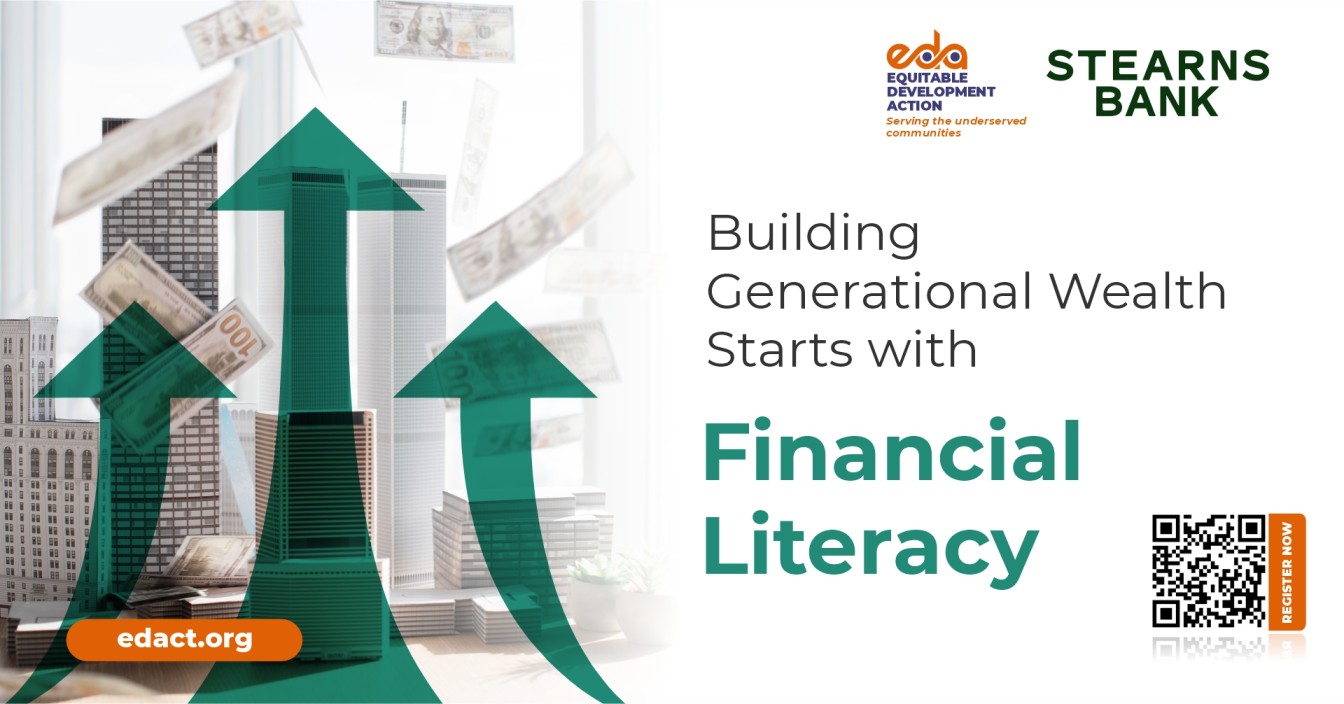
- Maryrose
- Jun 04, 2025
Building Generational Wealth Starts with Financial Literacy
Generational wealth, the ability to pass down financial assets, knowledge, and stability from one generation to the next, remains one of the most persistent gaps between racial and ethnic groups in the United States. For Black, Indigenous, and People of Color (BIPOC) communities, this gap is not a reflection of individual capability, but a result of centuries of systemic exclusion from economic opportunity.
At Equitable Development Action (EDA), we believe financial literacy is one of the most powerful tools for closing that gap. Not only does it empower individuals and families to take control of their financial futures, but it lays the foundation for long-term wealth building and economic resilience.
The Barriers Are Structural, and Personal
Let’s be clear: generational wealth gaps exist because of policies like redlining, discriminatory lending, underfunded education systems, and the racial wage gap. But even when opportunities do arise, many BIPOC individuals are left unequipped to navigate complex financial systems due to a lack of accessible education.
According to the 2022 TIAA Institute-GFLEC Personal Finance Index, African American adults answered an average of 37% of financial literacy questions correctly, compared to 55% among white adults. Only 28% of Black respondents answered over half of the questions correctly.
This stark gap reflects the lasting impact of systemic exclusion from financial systems and highlights the urgent need for targeted, accessible financial education programs tailored to BIPOC communities
Why Financial Literacy Matters
Financial literacy isn’t just about balancing a checkbook or understanding credit. It’s about:
- Recognizing predatory practices like payday loans or high-interest credit traps
- Making informed decisions about mortgages, student loans, and business financing
- Knowing your rights as a consumer and a worker
- Creating a plan for savings, investments, and generational transfer of assets
When these tools are available, individuals don’t just survive, they build, protect, and pass on wealth.
Financial Literacy in Action: The EDA Approach
Through our Economic Empowerment Program and EDA Training Academy, we offer culturally-relevant, community-rooted financial literacy workshops designed specifically for underserved communities.
One next session, “Consumer Awareness: focused on helping participants evaluate financial products and protect themselves against fraud and exploitation.
Join us for our next Financial Literacy Workshop on June 18, 2025
Topic: “Consumer Awareness: Understanding Financial Rights & Product Evaluation”
Register Here
Explore our full catalog of training opportunities at the EDA Training Academy
At EDA, we believe that knowledge is power, and financial literacy is liberation. When communities understand how money works, they can break cycles of poverty and build lasting legacies.
Let’s build together.
